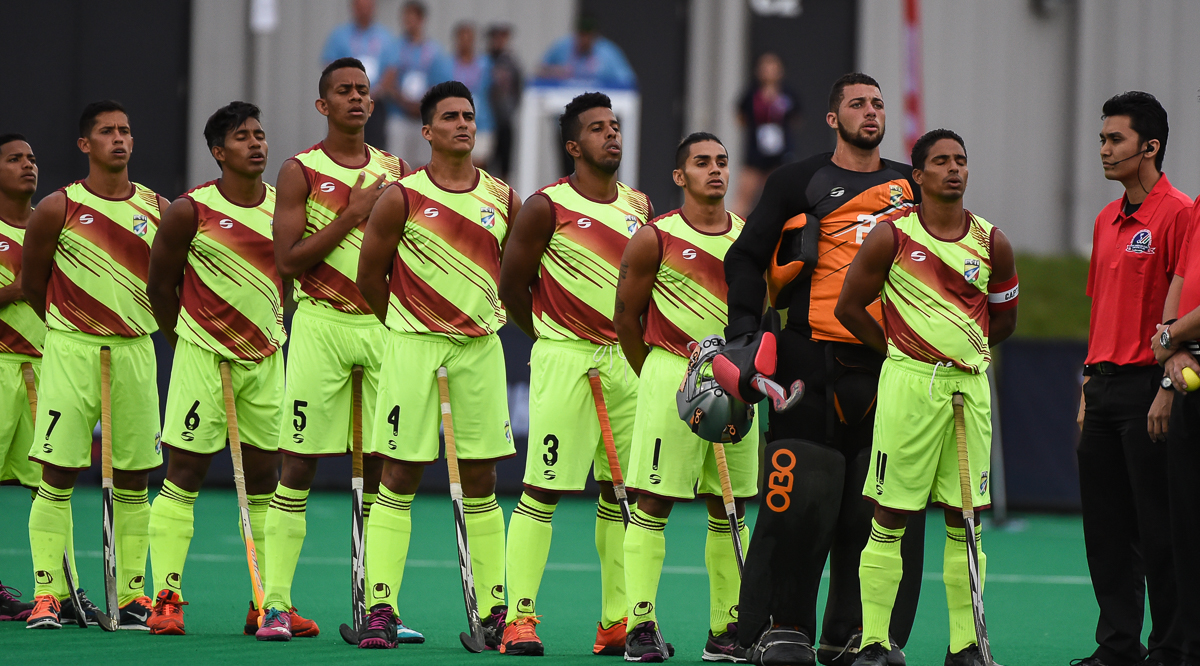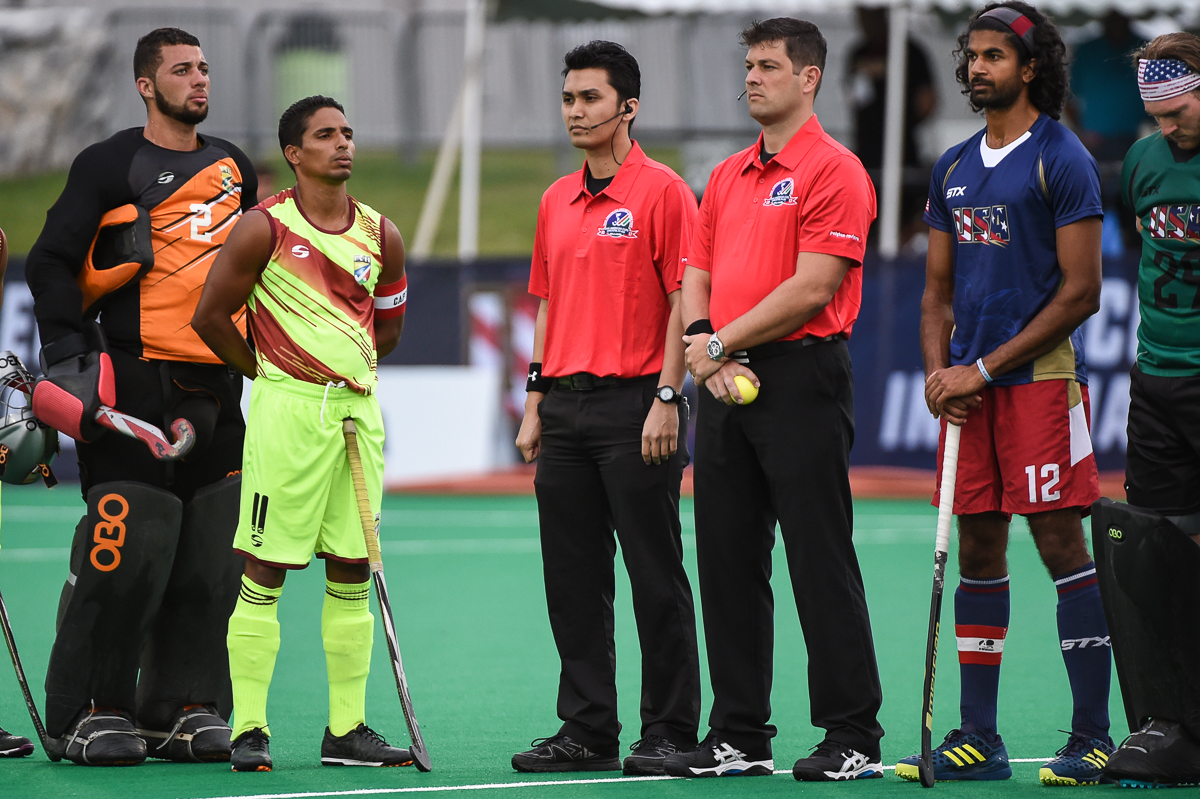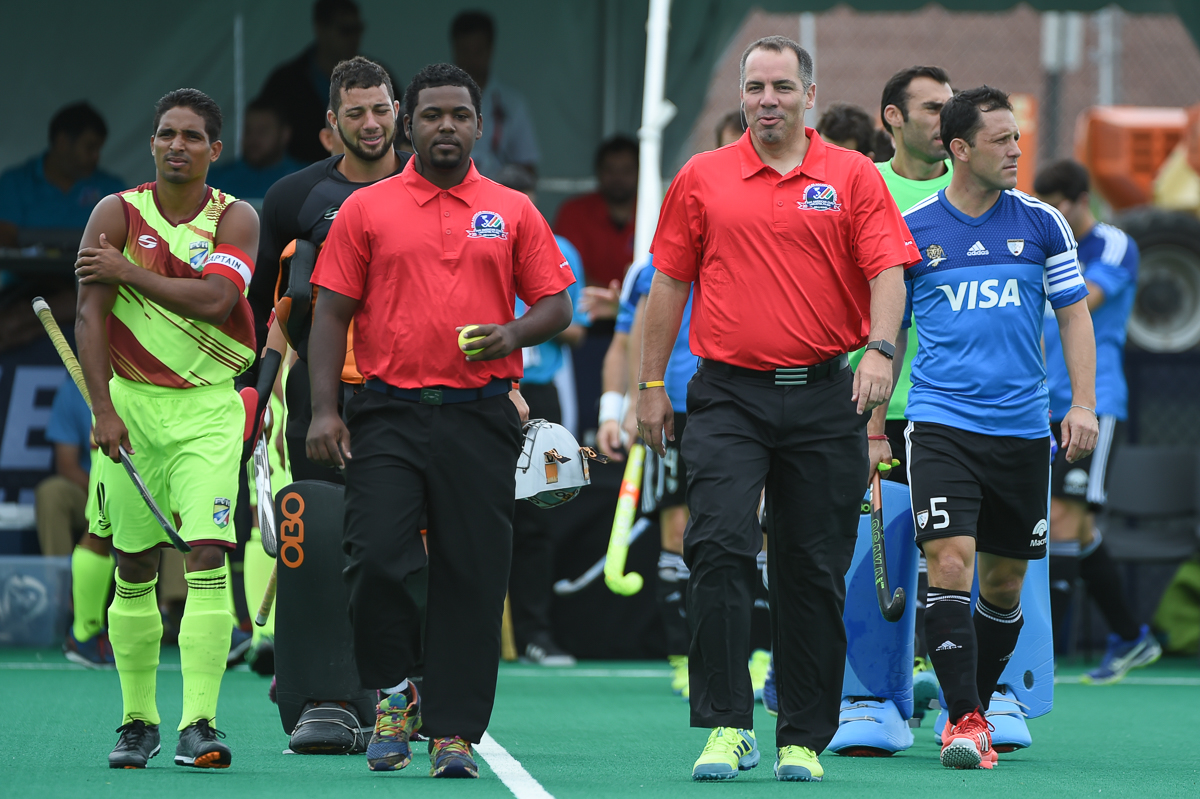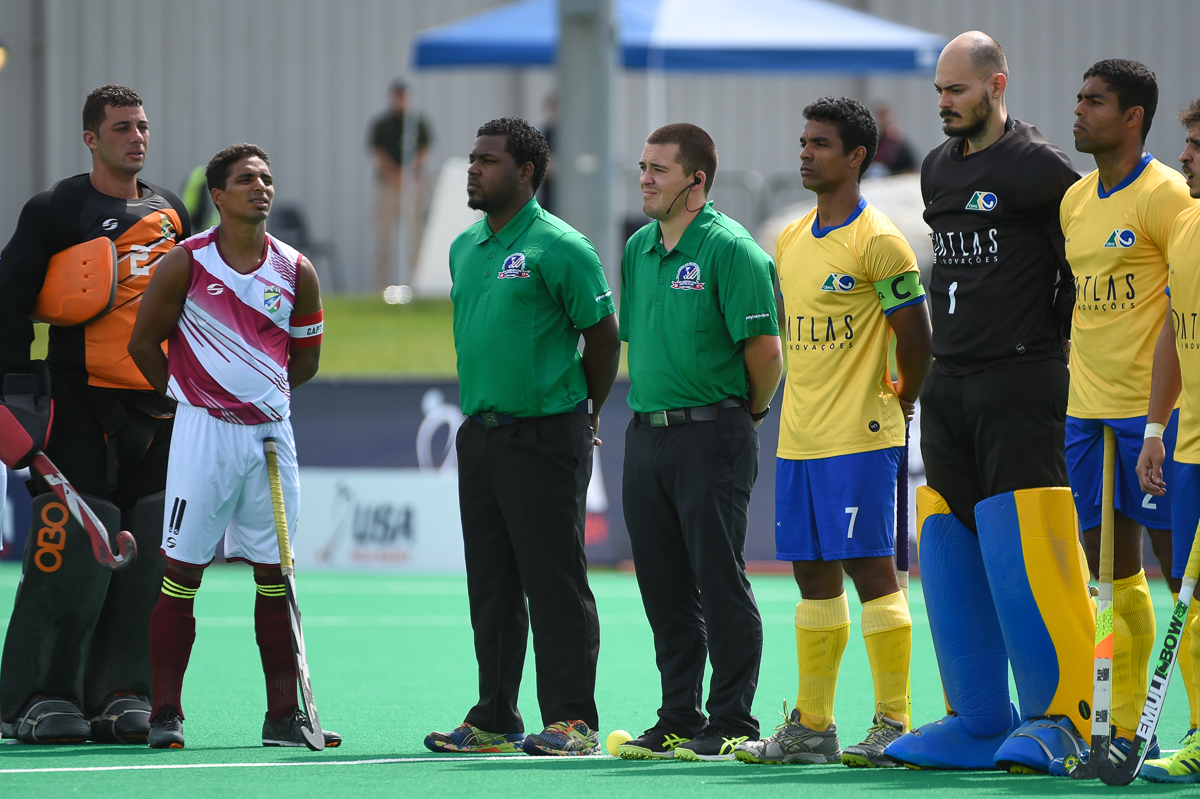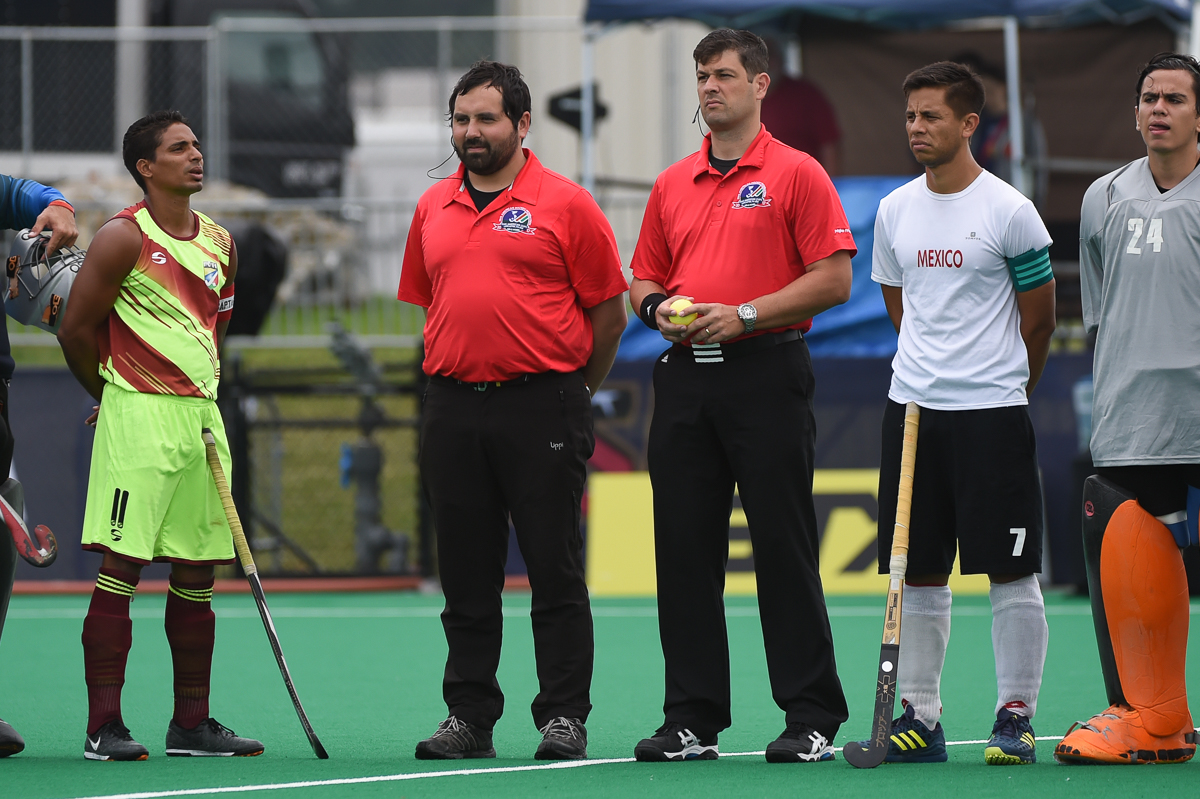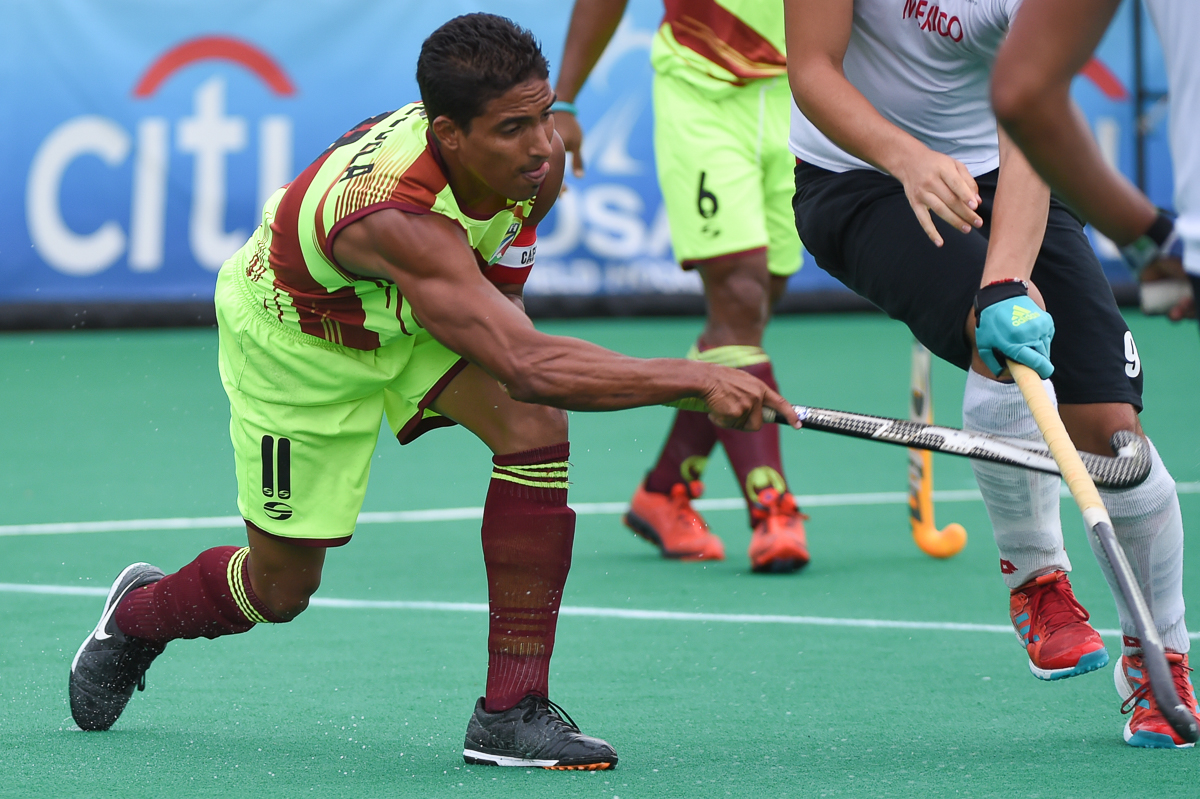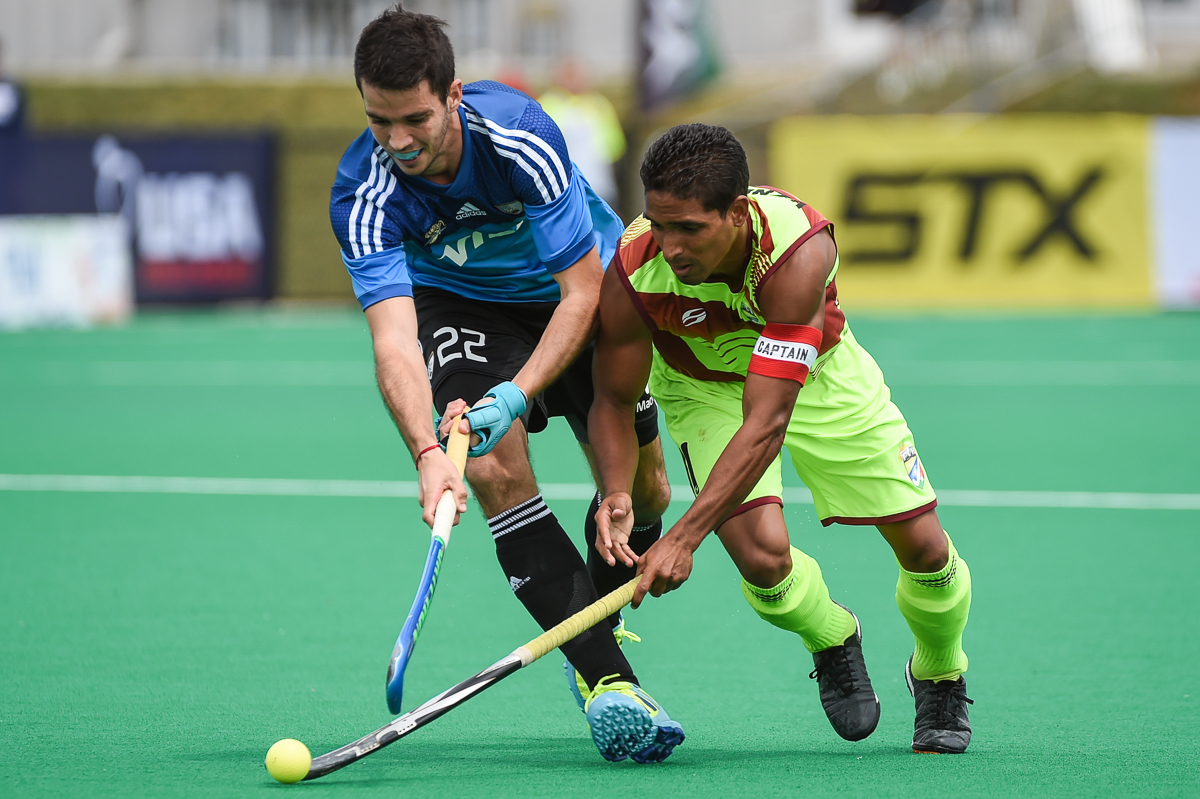
With thanks to Michael Gibney and Karen Moreno for the interview and translation
Andy Adrians quit his career in the police force to concentrate full-time on hockey, as both captain of the national men’s hockey team and as a development worker for the sport.
This is not an unusual situation in some countries where playing hockey can be a paid profession and the country’s infrastructure supports sporting initiatives.
But this was no simple or safe situation because Andy’s team and country is Venezuela, the South American country currently turn apart by politics. Even as Andy conducted the interview for this article, Venezuela was hitting the headlines across the world as the United Nations Security Council met to discuss escalating violence in the country, which had left a number of people dead.
When the political conflict began, Andy had no intention of leaving his homeland. The warring between the two main political groups did persuade him that he had no place in the police force but, as he says: “At that point leaving my homeland was never an option, I couldn't picture myself leaving everything behind. Family and friends....” The 29-year-old’s voice tails off.
Initially Andy threw himself into hockey coaching but as the situation worsened in Venezuela, so he began to question whether it would be better for him and his family if he were to leave the country. “When I realised the situation was getting worse I had to go away looking for something that might help my family have a future.
“It was one of the hardest things I have done in my life, I left my room with just the suitcases that I had been given when representing the country at hockey. I left not knowing when I was going to see my family again. I had to hide the depth of my emotions from my mother. Saying good bye to the people that care about me was just so difficult.”
Andy travelled with another national team player, Liseida Sarmiento. The pair embarked on a seven-day bus journey – a long haul trip through South America that saw them question their motives and consider turning back many, many times. As Andy says: Without Liseida, I might have not had the courage to make the move but we kept each other going. It was easier to have someone to talk to and share feelings with. We did have moments when we argued bitterly but she will always be the person I shared this journey, this adventure with.”
They were not the only two players fleeing the country. As far as Andy knows, another 28 players from the men’s and women’s national teams have left Venezuela and are setting up new lives in Peru, Chile, USA , Argentina, Dominican Republic and Spain.
Andy’s first stop was Lima, in Peru. His passage had been paid by coach Carlos Morales who had come across the young player at international tournaments. It was a leap of faith by both men. Andy was putting his trust in a man he had met only a handful of times; Carlos was funding a player not knowing if he would even leave Venezuela.
But it was a trust that paid off as Andy started playing hockey at Old Markham Hockey Club in Lima where Carlos was a player and club coach. He picked up work, helping with house maintenance and decoration and selling refreshments on the public transport system. This was followed by a job driving a delivery lorry, but he was soon looking for a new role as it was a working environment that saw a lot of mistreatment of the workers.
Eventually Andy found his way into hockey coaching and began to make better money. At this point his life began to look up and he was able to see a future for himself and his family.
“I received an offer from a Chilean hockey club, Sport Frances, to play for them and have more benefits. My experiences in Lima had been very tough for me, but I will remember it as a very important period of my life.”
Andy now sees himself as a citizen of the world. It is a situation, he says, that gives you a very different perspective on life. “My life has changed completely. I value everything around me. Being an immigrant has shown me all the really important things in life. I'm not the same person that left Venezuela, I now see myself as a son, brother, cousin, boyfriend and captain and so many other things.”
He now has regular employment as a hockey coach, has economic stability and is able to send money home to help the family members that remain in troubled Venezuela. He is a big part of the Sport Francés hockey club and has ambitions to lead the club to the national championships. He also would like the chance to play hockey in one of Europe’s big clubs. The sport, says Andy, has been his saviour through some really turbulent times.
“Hockey has been everything for me. Even as a teenager, hockey was a constant in my life. I had some complicated times as a youngster but taking up hockey is the best thing that could have happened to me. Everything I have achieved, my studies and jobs I have had through my life, have their roots in hockey. The sport enabled me to enter the police force, gave me the means to help my family. It has allowed me to help other kids to find their own paths in hockey. It's the centre of my life. It is thanks to hockey that I am living the life I want rather than the one I had to have.”
Andy has not turned his back on Venezuela. He hopes to return one day and even lead the national team into competition again, adding to the 49 caps he already has. “Venezuela is a country with enormous potential in hockey,” he says. “The teams have achieved incredible victories with very little equipment. Training takes place on concrete or dust/earth pitches and yet the teams go out and compete on artificial turf in international competitions.
“The players are young guys that day in, day out, fight against a system that is looking to extinguish their hopes and dreams. With this sort of backdrop, the Venezuelan national team has managed to break into the top four nations in South America and into the top 10 in the Pan American Hockey Federation (Venezuela men finished fourth in the 2018 South American Championships and eighth in the 2017 Pan Am Cup). Think what the team could do under different circumstances, particularly if we can ever get an artificial pitch to play and train on.
“My hope is never lost for the future of Venezuela and I always dream of the day I enjoy an afternoon coffee watching the sunset on the beach, a game of baseball and a walk in my neighbourhood, a hug with my parents and a plate of rice and ribs at my mother-in-law's house. I hope that the situation changes in Venezuela and that we can all return to our homeland.”
